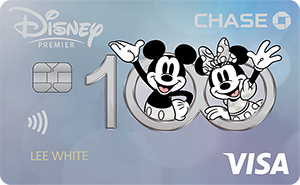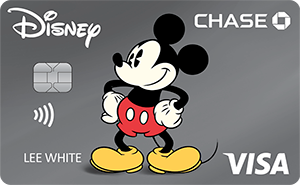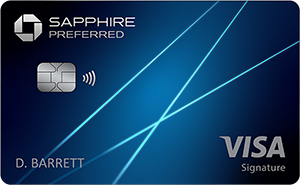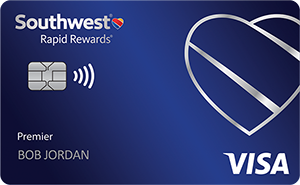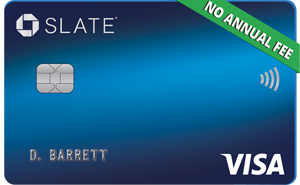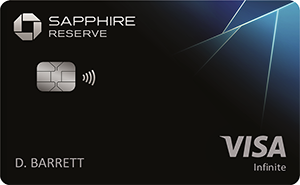What Credit Score Do You Need To Qualify for the Chase Sapphire Preferred Card?
The Chase Sapphire Preferred® Card is considered to be one of the top travel credit cards available today – and for good reason. It offers a host of travel benefits, opportunities to earn up to 5 points per dollar spent, purchase protection and more. New cardholders can earn a welcome bonus offer of 75,000 points after you spend $5,000 on purchases in the first three months of account opening.
So what credit score do you need to qualify for the Chase Sapphire Preferred Card? Similar to competing rewards cards, the Sapphire Preferred Card is only available to those with higher credit scores. We’ll explore the details, as well as things you can do to improve your chances of getting approved.

400+ Credit Cards
Analyzed independently across 50+ data points in 30+ product categories

Reviewed
By a team of credit card experts with an average of 9+ years of experience

Trusted by
More than one million monthly readers seeking unbiased credit card guidance
CardCritics™ editorial team is dedicated to providing unbiased credit card reviews, advice and comprehensive comparisons. Our team of credit card experts uses rigorous data-driven methodologies to evaluate every card feature, fee structure and rewards program. In most instances, our experts are longtime members or holders of the very programs and cards they review, so they have firsthand experience maximizing them. We maintain complete editorial independence — our ratings and recommendations are never influenced by advertiser relationships or affiliate partnerships. You can learn more about our editorial standards, transparent review process and how we make money to understand how we help you make informed financial decisions.
What Credit Score Do You Need for the Chase Sapphire Preferred Card?
Credit scores are ranked from poor to exceptional on the FICO scale, which ranges from 300 to 850. Here’s how it breaks down those ratings:
| Credit Rating | Credit Score |
|---|---|
| Poor | 300-579 |
| Fair | 580-669 |
| Good | 670-739 |
| Very Good | 740-799 |
| Exceptional | 800-850 |
The Sapphire Preferred Card requires a good credit score or better to be considered (a score of 670 or higher on FICO’s scale). A score in this range doesn’t guarantee approval, because Chase considers other factors when evaluating your application.
Other Sapphire Preferred Card Requirements Beyond Credit Score
Issuers also look at details such as your income, existing lines of credit and the number of credit cards you have recently applied for when deciding to approve you for a credit card. Your overall financial profile and credit history, including your debt-to-income ratio, average age of accounts and recent credit applications can all influence the outcome of your application.
Chase also has strict rules around who qualifies for the Sapphire Preferred Card in particular.
Sapphire 48-Month Rule
To be eligible for the Sapphire Preferred Card or its sister card, the Chase Sapphire Reserve® card, you can’t already have either card open. But even if you don’t currently have a Sapphire card, you’re still ineligible if you’ve earned a welcome bonus from either of these cards in the past 48 months. The wording here is important; the clock starts from when you received the bonus, not when you were approved for the card.
Chase 5/24 Rule
If your credit history shows that you’ve opened a lot of new credit cards in the past two years, you’ll probably be declined for the Sapphire Preferred Card. Known as the Chase 5/24 rule, this unwritten policy prevents applicants from being approved for most Chase credit cards if they’ve opened five or more credit cards (from any bank, except certain small-business cards) in the past 24 months.
Chase Sapphire Preferred Card Approval Odds
Chase doesn’t publicize the percentage of applicants it approves for the Sapphire Preferred Card, but understanding what factors are used to evaluate creditworthiness in general can help you gauge whether or not it’s worth applying.
For example, if your income is low (because you are a student, for example, or in an entry-level job) you’re less likely to be approved than someone who earns a lot of money. The irony is that people with lower incomes or who are just starting out are more likely to need credit but less likely to get it. Lenders don’t like to see people living off credit as it can make it more difficult to pay off your balance.
Likewise, if you have a history of not making timely payments, or if you have no credit history at all, it’s unlikely you’ll be approved. If a lack of history is your issue, you may want to consider a starter credit card geared toward those who are building credit.
An approval may also be easier to get if you already have a positive relationship and history with the bank.
How To Improve Your Credit Score To Qualify for the Sapphire Preferred Card
If you want to apply for a Sapphire Preferred Card but are concerned you may not be approved due to a low credit score, there are steps you can take to bring your score up before you apply.
Paying off debt to improve your credit utilization ratio is one way to improve your credit score. If you’re carrying balances on other credit cards, pay them down or off before you apply.
You should also check your credit report for errors. If there are mistakes on your report, such as late payments that were actually made on time, or account balances that are incorrect, notify the credit bureaus to have the mistakes corrected. Wait to apply until your credit report is accurate.
If you have recently applied for one or more credit cards or loans, wait at least six months before you apply again.
How To Prequalify for the Sapphire Preferred Card
You can see if you can get preapproved for a Sapphire Preferred Card online, without impacting your credit score. You’ll need to input your name, address and Social Security number, and you’ll have the option to include your gross annual income.
You’ll be shown any preapproved offers you qualify for. If you choose to accept an offer, Chase will do a “hard” credit check, which will impact your credit score. And just because you have an offer, you’re not guaranteed to be approved for the card you select. If the information on your credit report disqualifies you, you will be declined for the card.
What To Do if Your Application for the Chase Sapphire Preferred Card Is Denied
If you apply for the Sapphire Preferred Card and are declined, you should get a letter indicating that you were denied and why. The reason for denial will tell you what you have to fix in order to be considered.
Tips for Maximizing Your Approval Odds
If you were denied because your credit utilization ratio is too high, pay down some of your existing debt before applying again. Since one of the biggest factors in your credit score in your credit utilization ratio (the amount of credit you are using as a percentage of the total amount available to you), a good way to increase your credit score is to pay off some or all of your outstanding balances on your existing cards. After you have paid down some debt to improve your credit utilization ratio and credit score, you will be in a better position to apply again.
If you were denied for applying for or opening too many accounts, wait until you qualify under the Chase 5/24 rule before you apply again. Recent credit applications (whether you’re approved or not) can also have a negative impact on your credit score.
Some issuers have more strict criteria for approval than others. You might consider other cards that better suit your current financial and credit profile.
The information related to the Chase Sapphire Reserve® was collected by CardCritics™ and has not been reviewed or provided by the issuer of this product/card. Product details may vary. Please see issuer website for current information. CardCritics™ does not receive a commission for this product.
Frequently Asked Questions
Is the Chase Sapphire Preferred Card worth applying for?
Yes, the Sapphire Preferred Card is worth applying for if you have good or excellent credit and meet Chase’s other application rules. It’s best suited to those who travel and can take advantage of the card’s strong travel benefits and generous rewards.
Does applying for the Sapphire Preferred Card hurt your credit score?
Your application for the Sapphire Preferred Card will result in a hard credit inquiry which is reported to the major credit bureaus. This can result in a small, usually temporary decline in your credit score. If you apply for multiple cards at the same time, the negative impact can be greater.
Can a co-signer help you get approved for a Sapphire Preferred Card?
You can’t have a co-signer on a Chase Sapphire Preferred Card. If a friend or family member with a Sapphire Preferred Card is willing, they can add you as an authorized user on their card. This may help build your credit, but the primary cardholder will be responsible for any charges you make and you won’t be eligible for a welcome bonus.
How does the Sapphire Preferred Card compare to other Chase cards for eligibility?
The Sapphire Preferred Card is typically one of the harder Chase credit cards to get, in part because of its stricter application rules.
Can you apply for the Sapphire Preferred Card if you’re new to credit or rebuilding?
The Sapphire Preferred Card is designed for those with good or excellent established credit. If you have no credit history or are attempting to rebuild a poor credit history, you’re not likely to be approved.



